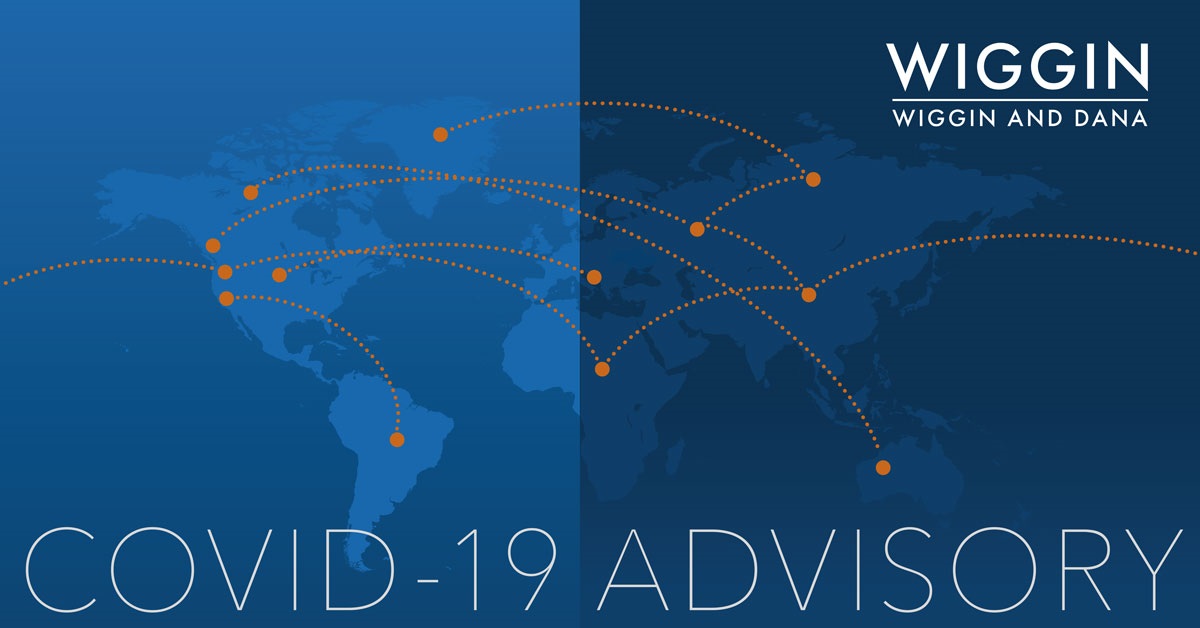COVID-19 Client Resources and Updates

Client Alert (Update) – Official Guidance on Connecticut Executive Order 7H, and Connecticut Executive Order 7J
On Friday, March 20, Connecticut Governor Ned Lamont issued Executive Order 7H in response to the deepening COVID-19 Pandemic. Order 7H requires all “non-essential” businesses and non-profits to reduce the number of employees they have working on-site at a workplace to zero, starting at 8 p.m. on Monday, March 23, and running through April 22 (though the length of time Order 7H is in place may be shortened or lengthened, depending on the changing circumstances). Please see the firm’s update issued on March 21 for a description of the requirements of Order 7H.
On the evening of March 22, Governor Lamont issued Executive Order 7J, which modifies some restrictions that Order 7H had initially imposed on non-essential retail businesses. Specifically, Order 7J permits non-essential retailers to have employees come on-site, as long as the non-essential retail business does not allow customers in the store but instead only fills orders remotely (placed by phone, internet, mail, or dropbox), and delivered to a customer or made available for curbside delivery. Order 7J also permits non-essential businesses to allow staff or third parties on site to provide security and maintenance, and to handle mail and package delivery, or other services deemed “essential” by the Connecticut Department of Economic and Community Development (DECD). In addition, non-essential employers may continue to operate with their employees working from home, or by delivering services off-site, such as to a customer’s home.
As anticipated, on the evening of March 22 the DECD issued official guidance to businesses elaborating on what entities are deemed “essential” for this purpose. In sum, this guidance lays out a long list of businesses and services that are deemed “essential” and not subject to the requirement of Order 7H that employees may only work from home. These “essential” functions include, among others, the broad categories of all workers in the 16 critical infrastructure sectors defined by the U.S. Department of Homeland Security (DHS) and all manufacturers; but also some narrow categories, such as landscaping and billboard leasing. However, employees of “essential” business whose duties are not critical to the essential business function should work from home to the extent possible.
A link to the DECD’s guidance and Order 7H is found here: https://portal.ct.gov/DECD/Content/Coronavirus-for-Businesses/Coronavirus-for-Businesses
A link to the DHS guidance is found here: https://www.cisa.gov/publication/guidance-essential-critical-infrastructure-workforce
We remain available to assist all of our clients in determining whether they are an “essential” business under Order 7H, and in applying to the relevant state agency for an exemption if necessary, as well as advising on similar orders issued by other states.
Please contact Paul Tuchmann at 203.498.4336, or your Wiggin and Dana attorney, if you have any questions.
Visit Wiggin and Dana’s COVID-19 Resource Center here for additional publications and helpful links on multi-disciplinary topics that are relevant during the current COVID-19 global pandemic.
